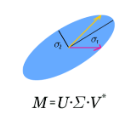Complexity theory typically focuses on the difficulty of solving computational problems using classical inputs and outputs, even with a quantum computer. In the quantum world, it is natural to apply a different notion of complexity, namely the complexity of synthesizing quantum states. We investigate a state-synthesizing counterpart of the class NP, referred to as stateQMA, which is concerned with preparing certain quantum states through a polynomial-time quantum verifier with the aid of a single quantum message from an all-powerful but untrusted prover. This is a subclass of the class stateQIP recently introduced by Rosenthal and Yuen (ITCS 2022), which permits polynomially many interactions between the prover and the verifier. Our main result consists of the basic properties of this class (as well as a variant with an exponentially small gap), such as error reduction, and its relationship to other fundamental state synthesizing classes, viz., states generated by uniform polynomial-time quantum circuits (stateBQP) and space-uniform polynomial-space quantum circuits (statePSPACE). Additionally, we demonstrate that stateQCMA is closed under perfect completeness. Our proof techniques are based on the quantum singular value transformation introduced by Gily\'en, Su, Low, and Wiebe (STOC 2019), and its adaption to achieve exponential precision with a bounded space.
翻译:复杂度理论通常侧重于使用古典投入和产出解决计算问题的难度,即使使用量子计算机也是如此。在量子世界中,自然会应用不同的复杂性概念,即综合量子状态的复杂性。我们调查了类NP(称为状态QMA)的州合成对应方,称为“状态QMA”,它涉及通过一个多米时量子校验器来准备某些量子国家,其辅助是来自一个全能但不信任的验证器的单量子量子信息。这是罗森塔尔和尤恩(ITS 2022)最近引入的等级QIP(状态PAS 2022)的子类,它允许验证器和校验器之间的多位性互动。我们的主要结果包括这一类的基本特性(以及一个差异很小的变异体),例如错误减少,以及它与其他基本状态合成级(例如,由统一多米时量子电路(状态BQPQP)生成的单级QIP,以及空间统一多空量量子电路(状态PAS2022 ) 和空间统一多米量子路路路(状态PSCOP 20-C) 和精确度校准度变校准,我们的精确度技术的SUnialalimalimQ) 。我们展示的SUIDalalalalalalalalal 和SUILI 和SIAL 的SIAL 。</s>





